COVID-19: TCTMD’s Daily Dispatch for April Week 1
We’re curating a list of COVID-19 research and other useful content, and updating it daily.
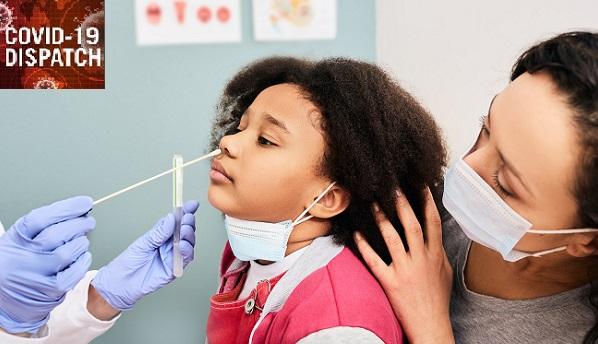
TCTMD reporter Todd Neale is keeping up on breaking news and peer-reviewed research related to COVID-19 and will update daily. If you have something to share, tell us. All of our COVID-19 coverage can be found on our COVID-19 Hub.
April 9, 2021
Earlier this week, the European Medicines Agency (EMA) concluded that “unusual blood clots with low blood platelets” should be listed as very rare side effects of the Oxford/AstraZeneca COVID-19 vaccine, but the regulator is still looking into other potential vaccine safety issues, including a signal of capillary leak syndrome with the AstraZeneca/Oxford shot and thromboembolic events with the Janssen vaccine from Johnson & Johnson. It’s not yet clear whether either association is causal, the EMA said.
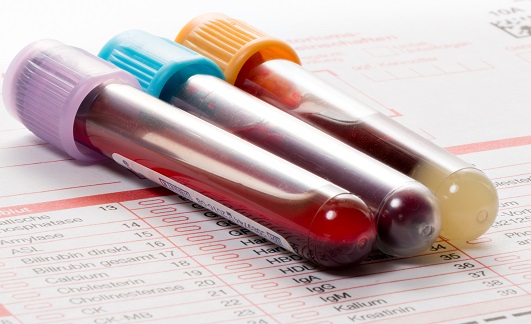 That announcement was made just hours ahead of the publication of two fast-tracked papers in the New England Journal of Medicine, detailing the link between the Oxford/AstraZeneca vaccine (ChAdOx1 nCoV-19) and the syndrome now coined “vaccine-induced immune thrombotic thrombocytopenia” (VITT). TCTMD’s Daily Dispatch reported on one of these papers last month when it was published to a preprint server. Now, say authors of a second paper, the findings “strengthen the view” that vaccination is the trigger for this particular adverse response, but this also opens the door for the use of widely available lab tests and treatment when the rare reaction arises. TCTMD’s Shelley Wood has the story.
That announcement was made just hours ahead of the publication of two fast-tracked papers in the New England Journal of Medicine, detailing the link between the Oxford/AstraZeneca vaccine (ChAdOx1 nCoV-19) and the syndrome now coined “vaccine-induced immune thrombotic thrombocytopenia” (VITT). TCTMD’s Daily Dispatch reported on one of these papers last month when it was published to a preprint server. Now, say authors of a second paper, the findings “strengthen the view” that vaccination is the trigger for this particular adverse response, but this also opens the door for the use of widely available lab tests and treatment when the rare reaction arises. TCTMD’s Shelley Wood has the story.
France’s top health body, the Haute Autorite de la Sante, is expected to recommend that people under age 55 who have received a first dose of the AstraZeneca/Oxford vaccine should get their second shot with an mRNA-based vaccine from Pfizer/BioNTech or Moderna, both of which are also approved for use in the country, Reuters reports.
German Chancellor Angela Merkel plans take control of the pandemic response from the federal states to better respond to surges of infections in certain regions, with the introduction of draft legislation expected next week, Reuters reports. “Finance Minister Olaf Scholz said this will include compulsory measures in regions with 100 or more new coronavirus cases per 100,000 people over 7 days. Above an incidence of 200, distance learning was planned for schools again, he added.”
Michigan has emerged as a new US hot spot of COVID-19 activity, and—as seen during the initial stages of the pandemic in most parts of the world—several hospitals in the state are starting to postpone some surgical procedures to maintain the ability to care for the influx of patients infected with the virus, the Detroit Free Press reports. “After enduring the first two surges and the gains we made to bring down hospitalizations the past couple of months, none of us expected what we are seeing today,” a leader of the Henry Ford Health System said. “This should make all of us extremely concerned—not just the health systems and the hospitals, but the people of all communities across Michigan.”
 Two US vaccination sites—one in North Carolina and one in Colorado—were temporarily shut down after several people at each location developed immediate adverse reactions to Johnson & Johnson’s Janssen vaccine, CBS News reports. At the Colorado site, the reactions ranged from nausea to dizziness. It was previously reported that distribution of the Janssen vaccine in the US is expected to fall 85% next week due in part to quality-control issues.
Two US vaccination sites—one in North Carolina and one in Colorado—were temporarily shut down after several people at each location developed immediate adverse reactions to Johnson & Johnson’s Janssen vaccine, CBS News reports. At the Colorado site, the reactions ranged from nausea to dizziness. It was previously reported that distribution of the Janssen vaccine in the US is expected to fall 85% next week due in part to quality-control issues.
Fears of an increase in suicide deaths related to the pandemic and the restrictions imposed on society have not been realized, at least in the United States, according to preliminary government data discussed in an Associated Press story. In fact, the number of US suicides declined by 6% last year, which is the largest annual decline in at least four decades. Christine Moutier, MD, chief medical officer of the American Foundation for Suicide Prevention, speculates on the reason: “There’s a heroism phase in every disaster period, where we’re banding together and expressing lots of messages of support that we’re in this together. You saw that, at least in the early months of the pandemic.”
Citing an increase in the domestic supply of new respirators, the US Food and Drug Administration (FDA) “is recommending healthcare personnel and facilities transition away from crisis capacity conservation strategies, such as decontaminating or bioburden reducing disposable respirators for reuse.” The FDA is not yet, however, revoking emergency use authorizations for decontamination and bioburden reduction systems, which can still be used when needed.
About a year into the pandemic, 43.3% of US military veterans reported at least moderate levels of positive psychological changes or posttraumatic growth (PTG) related to COVID-19, including a greater appreciation of life, improved social relationships, and increased personal strength, according to a study in JAMA Network Open. The prevalence of PTG was greater in veterans who screened positive for COVID-19-associated posttraumatic stress disorder (PTSD) symptoms. “Symptoms of PTSD associated with COVID-19 may prompt reflective processing of the pandemic, which may in turn help stimulate positive psychological changes,” the authors say.
Another study in JAMA Network Open confirms what has been seen in prior analyses—in-hospital mortality declined across all age groups as the pandemic progressed. “Reductions in mortality rates did not appear to be associated with the age distribution of hospitalized patients with SARS-CoV-2-positive tests and were likely because of new therapies and improvements in the clinical management of patients with SARS-CoV-2 infection,” the authors say.
 Researchers examined the infectivity of SARS-CoV-2 in children versus adults by obtaining nasopharyngeal swabs and growing the virus in cell cultures, finding that viral growth was less likely in samples from children. Children also had higher cycle thresholds and lower viral concentrations, “suggesting [they] are not the main drivers of SARS-CoV-2 transmission,” the authors write in CMAJ.
Researchers examined the infectivity of SARS-CoV-2 in children versus adults by obtaining nasopharyngeal swabs and growing the virus in cell cultures, finding that viral growth was less likely in samples from children. Children also had higher cycle thresholds and lower viral concentrations, “suggesting [they] are not the main drivers of SARS-CoV-2 transmission,” the authors write in CMAJ.
April 8, 2021
A 12-month investigation from the Guardian and KHN—called “Lost on the Frontline”—tallied 3,607 US healthcare worker deaths during the first year of the pandemic. The highest percentage of deaths occurred in nurses (32%), followed by healthcare support workers (20%), physicians (17%), and medical first responders (7%). The website provides personal details for those who died. “We rightfully refer to these people without hyperbole—that they are true heroes and heroines,” Anthony Fauci, MD, director of the National Institute of Allergy and Infectious Diseases (NIAID), told the news organizations in an exclusive interview. The COVID deaths of so many are “a reflection of what healthcare workers have done historically, by putting themselves in harm’s way, by living up to the oath they take when they become physicians and nurses,” he said.
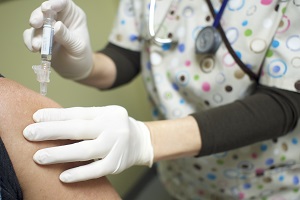 Fallout related to the possible link between the Oxford/AstraZeneca vaccine and rare blood clots continues. Australia and the Philippines limited use of the shot and the African Union scrapped plans to buy it after the European Medicines Agency (EMA) acknowledged the potential side effect, Reuters reports. The EMA maintains that the benefits of using the vaccine outweigh the potential risks.
Fallout related to the possible link between the Oxford/AstraZeneca vaccine and rare blood clots continues. Australia and the Philippines limited use of the shot and the African Union scrapped plans to buy it after the European Medicines Agency (EMA) acknowledged the potential side effect, Reuters reports. The EMA maintains that the benefits of using the vaccine outweigh the potential risks.
As in other parts of the world, multiple Asian countries—including India, South Korea, and Thailand—are facing rising COVID-19 numbers, “undermining cautious hopes that Asia might be emerging from the worst of the pandemic as worries about safety threatened to delay vaccination drives,” according to a story from Reuters. Daily case numbers have exceeded 100,000 in India three times this week, possibly driven by the spread of more-infectious variants.
The Associated Press has some good news out of the United Kingdom: researchers from Imperial College London found that COVID-19 numbers fell 60% in March as national lockdowns slowed spread of the virus and vaccinations ramped up. People 65 and older, who were prioritized for vaccination, were least likely to be infected. In addition, the researchers said, the findings suggest “infections may have resulted in fewer hospitalizations and deaths since the start of widespread vaccination.”
 The more-transmissible B.1.1.7 variant that first emerged in the UK is now the dominant strain in the United States, Rochelle Walensky, MD, head of the Centers for Disease Control and Prevention (CDC), said Wednesday, NPR reports: “Walensky said that the newer strain has been shown to be more transmissible among younger people and that new outbreaks in the US have been linked to youth sports and day care centers.”
The more-transmissible B.1.1.7 variant that first emerged in the UK is now the dominant strain in the United States, Rochelle Walensky, MD, head of the Centers for Disease Control and Prevention (CDC), said Wednesday, NPR reports: “Walensky said that the newer strain has been shown to be more transmissible among younger people and that new outbreaks in the US have been linked to youth sports and day care centers.”
Long-term symptoms are common in healthcare professionals who have recovered from a mild case of COVID-19, researchers report in JAMA. About one-quarter (26%) of seropositive patients had at least one moderate-to-severe symptom lasting 2 months or more, and 15% had at least one symptom lasting 8 months or more; figures in seronegative participants were 9% and 3%, respectively. The most common symptoms were anosmia, fatigue, ageusia, and dyspnea. Seropositive participants were more likely to say the symptoms disrupted their work, social, and home lives.
As most medical meetings over the next few months continue to go the virtual route, TCT 2021, now pushed to November 4 to 6, 2021, is being planned as an “in-person experience broadcast live” in Orlando, FL. The Cardiovascular Research Foundation (publisher of TCTMD) also announced late last month that its annual TVT conference would also be held at least partly in-person in Miami in July.
In a study in JAMA Network Open, researchers delve into the types of patients who leaned most on telehealth for cardiology care during the pandemic. During the peak, patients who most frequently used telehealth tended to be younger and privately insured, to have more comorbidities, and to be from underrepresented racial groups, TCTMD’s Yael Maxwell reports. “The pandemic really jump-started the shift to telemedicine,” the lead author said.
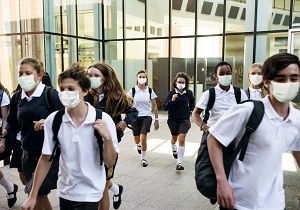 Concerns about the educational impact of school shutdowns related to COVID-19 appear to be justified, according to a study in PNAS. Looking at national examinations that took place in the Netherlands before and after an 8-week shutdown, researchers estimated a learning loss “equivalent to one-fifth of a school year, the same period that schools remained closed,” with even larger impacts in students from less-educated homes. “The findings imply that students made little or no progress while learning from home and suggest losses even larger in countries with weaker infrastructure or longer school closures,” they say.
Concerns about the educational impact of school shutdowns related to COVID-19 appear to be justified, according to a study in PNAS. Looking at national examinations that took place in the Netherlands before and after an 8-week shutdown, researchers estimated a learning loss “equivalent to one-fifth of a school year, the same period that schools remained closed,” with even larger impacts in students from less-educated homes. “The findings imply that students made little or no progress while learning from home and suggest losses even larger in countries with weaker infrastructure or longer school closures,” they say.
April 7, 2021
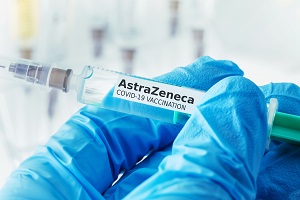 Citing a possible link to the COVID-19 vaccine from AstraZeneca and the University of Oxford (Vaxzevria), the European Medicines Agency (EMA) said Wednesday that “unusual blood clots with low blood platelets should be listed as very rare side effects.” Most reported cases have occurred in women younger than 60 within 2 weeks of vaccination, but specific risk factors have not been confirmed, the agency notes. Overall, the regulator says, “the reported combination of blood clots and low blood platelets is very rare, and the overall benefits of the vaccine in preventing COVID-19 outweigh the risks of side effects.”
Citing a possible link to the COVID-19 vaccine from AstraZeneca and the University of Oxford (Vaxzevria), the European Medicines Agency (EMA) said Wednesday that “unusual blood clots with low blood platelets should be listed as very rare side effects.” Most reported cases have occurred in women younger than 60 within 2 weeks of vaccination, but specific risk factors have not been confirmed, the agency notes. Overall, the regulator says, “the reported combination of blood clots and low blood platelets is very rare, and the overall benefits of the vaccine in preventing COVID-19 outweigh the risks of side effects.”
The issue is complicating the European vaccine rollout. The UK Joint Committee on Vaccination and Immunisation (JCVI) said Wednesday that people under 30 should not receive the AstraZeneca/Oxford vaccine, and should be offered an alternate vaccine where possible, due to the risk, Reuters reports. Moreover, several countries are considering mixing different types of COVID-19 vaccine for people who received the AstraZeneca/Oxford shot for their first dose. The University of Oxford has paused a small trial testing the vaccine in children and teens.
The US National Institutes of Health (NIH) has initiated a clinical trial to determine whether people who are highly allergic or have a mast cell disorder have a greater risk of developing an immediate, systemic allergic reaction to the Moderna or Pfizer/BioNTech COVID-19 vaccines. Investigators will also be examining the biological mechanisms underlying any reactions and looking for factors that can identify people at risk for such reactions.
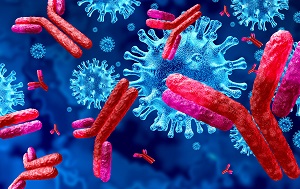 A study of 33 adults participating in a phase I trial of the Moderna COVID-19 vaccine, published as a letter in the New England Journal of Medicine, shows that antibodies persisted 6 months after the second dose was administered. The authors acknowledge that “the antibody titers and assays that best correlate with vaccine efficacy are not currently known,” but say the data “support the use of this vaccine in addressing the COVID-19 pandemic.”
A study of 33 adults participating in a phase I trial of the Moderna COVID-19 vaccine, published as a letter in the New England Journal of Medicine, shows that antibodies persisted 6 months after the second dose was administered. The authors acknowledge that “the antibody titers and assays that best correlate with vaccine efficacy are not currently known,” but say the data “support the use of this vaccine in addressing the COVID-19 pandemic.”
German Chancellor Angela Merkel said she supports a “short, uniform lockdown” across Germany to combat high SARS-CoV-2 activity, the Associated Press reports: “German state governors, who are responsible for imposing and lifting virus restrictions, have taken differing approaches lately. Some have continued to back limited reopening steps while others advocate a stricter shutdown.”
Brazil, facing a surge of cases fueled by spread of a more-infectious variant, reported more than 4,000 COVID-19 deaths within a 24-hour period for the first time since the pandemic began, according to BBC News. The country’s death total is now nearly 337,000, second only to the United States (about 557,000). Brazilian President Jair Bolsonaro continues to oppose any restrictions meant to control spread of the virus, arguing that the economic damage would be worse than the effects of the disease.
California is planning on fully reopening its economy on June 15, depending on two factors—a sufficient vaccine supply and low hospitalization numbers, the Los Angeles Times reports. Things won’t be completely back to normal, however, as a mask mandate will remain in place. “With the expectation of an abundance of doses coming in from the federal government through the end of this month and into May, we can confidently say by June 15 that we can start to open up as business as usual—subject to ongoing mask wearing and ongoing vigilance,” Governor Gavin Newsom said Tuesday.
In the US, the latest data show that 44% of new COVID-19 cases have been recorded in just five states home to 22% of Americans—New York, Michigan, Florida, Pennsylvania, and New Jersey. And that “is putting pressure on the federal government to consider changing how it distributes vaccines by sending more doses to hot spots,” USA Today reports. As expected, President Joe Biden yesterday said all adults would be eligible for vaccination by April 19, NPR reports. “No more confusing rules, no more confusing restrictions," he said.
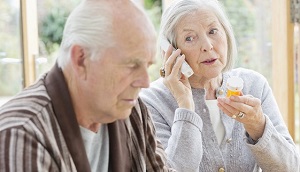 In contrast to the elevated risk of venous thromboembolism (VTE) observed in patients hospitalized with COVID-19, outpatients with SARS-CoV-2 infection do not appear to carry a greater risk, according to a study out of the Kaiser Permanente Northern California system published in JAMA Internal Medicine. The lead author told TCTMD the finding was “surprising and reassuring” and suggests that “blood clots do occur in COVID-19 patients but not on a scale where we need to put all or many COVID outpatients on blood thinners.”
In contrast to the elevated risk of venous thromboembolism (VTE) observed in patients hospitalized with COVID-19, outpatients with SARS-CoV-2 infection do not appear to carry a greater risk, according to a study out of the Kaiser Permanente Northern California system published in JAMA Internal Medicine. The lead author told TCTMD the finding was “surprising and reassuring” and suggests that “blood clots do occur in COVID-19 patients but not on a scale where we need to put all or many COVID outpatients on blood thinners.”
A study in JAMA Pediatrics provides more information on the multisystem inflammatory syndrome in children (MIS-C) associated with SARS-CoV-2 infection, showing peaks in its occurrence 2 to 5 weeks after COVID-19 peaks. That “suggested that MIS-C resulted from delayed immunologic responses to SARS-CoV-2 infection,” the authors say. Most patients in the study were male (57.6%) or Hispanic or non-Hispanic Black (71.3%). Cardiac dysfunction was reported in 31.0% of cases.
One-third of patients diagnosed with COVID-19 will have an incident neurological or psychiatric diagnosis in the next 6 months, with 12.84% receiving their first diagnosis of that type, according to a study in the Lancet Psychiatry. Incidence was even higher in patients who had required intensive care. “Given the size of the pandemic and the chronicity of many of the diagnoses and their consequences (eg, dementia, stroke, and intracranial hemorrhage), substantial effects on health and social care systems are likely to occur,” the authors say.

April 6, 2021
A Reuters tally puts the global COVID-19 death toll at more than 3 million as case numbers surge around the world, attributed to both the spread of more-infectious SARS-CoV-2 variants and a public less willing to adhere to restrictions aimed at stemming transmission. It took more than a year to reach 2 million worldwide deaths and just 3 months to add the next million, according to Reuters. The Johns Hopkins COVID-19 Dashboard had the global death toll at 2.86 million as of Tuesday morning.
 The SARS-CoV-2 variant first detected in Brazil (P.1) is fueling a surge in COVID-19 cases across South America, BBC News reports. Record numbers of daily infections were seen in Uruguay and Paraguay as the total number in Brazil passed 13 million. Recently, Peru’s health minister said 40% of cases in Lima were caused by the P.1 variant. Other countries in the region, including Bolivia, Venezuela, and Argentina, have reported finding the variant, too.
The SARS-CoV-2 variant first detected in Brazil (P.1) is fueling a surge in COVID-19 cases across South America, BBC News reports. Record numbers of daily infections were seen in Uruguay and Paraguay as the total number in Brazil passed 13 million. Recently, Peru’s health minister said 40% of cases in Lima were caused by the P.1 variant. Other countries in the region, including Bolivia, Venezuela, and Argentina, have reported finding the variant, too.
New Zealand will open a travel bubble with Australia on April 19, which would allow quarantine-free travel between the countries, the Washington Post reports. “Both countries have managed to keep out the virus by putting up barriers to the outside world, including strict quarantine requirements for travelers from countries where the virus is rampant,” the story notes.
President Joe Biden is expected to announce Tuesday that the deadline for all states to make all adults eligible for COVID-19 vaccination will be moved up to April 19 from the previously announced goal of May 1, according to the Associated Press.
According to two “Frame of Reference” articles published in Circulation, “a tsunami of chronic health conditions as a result of the SARS-CoV-2 pandemic, especially cardiometabolic disease, may produce an enormous wave of death and disability that demands immediate, comprehensive strategies.” Robert Califf, MD, discusses how to avoid that wave of chronic health conditions, while Nanette Wanger, MD, and Sandra Lewis, MD, discuss the healthcare system’s response to the convergence of three simultaneous pandemics—COVID-19, economic disruption, and social injustice.
To facilitate the reopening of the economy and quickly snuff out any outbreaks, twice-weekly COVID-19 testing will be offered to everyone in England, although not everybody thinks it’s a good idea, BBC News reports. “Mass testing is a scandalous waste of money,” said Allyson Pollock, professor of public health at Newcastle University. “When the prevalence rate of coronavirus falls as low as it is at the moment then an increasing proportion of cases are likely to be false-positives, meaning that cases and contacts will self-isolate unnecessarily.”
 Use of regular household cleaners and soap are sufficient for cleaning indoor surfaces to lower the risk of SARS-CoV-2 transmission, with more-potent disinfectants “likely not needed unless someone in your home is sick or if someone who is positive for COVID-19 has been in your home within the last 24 hours,” the Centers for Disease Control and Prevention (CDC) said Monday in updated guidance.
Use of regular household cleaners and soap are sufficient for cleaning indoor surfaces to lower the risk of SARS-CoV-2 transmission, with more-potent disinfectants “likely not needed unless someone in your home is sick or if someone who is positive for COVID-19 has been in your home within the last 24 hours,” the Centers for Disease Control and Prevention (CDC) said Monday in updated guidance.
A senior European Medicines Agency (EMA) official, addressing the blood clot risk in people who have received the Oxford/AstraZeneca COVID-19 vaccine, told an Italian newspaper that “in my opinion, we can now say it, it is clear there is an association with the vaccine,” Reuters reports. “However, we still do not know what causes this reaction.” The EMA has maintained that the benefits of receiving the vaccine outweigh the potential risks. It last made a formal statement on March 31, saying its review of the issue is ongoing: “A causal link with the vaccine is not proven, but is possible and further analysis is continuing.”
As of February 2021, an estimated 37,300 children and teens in the United States had lost at least one parent to COVID-19, researchers report in JAMA Pediatrics. When considering excess deaths during the pandemic, the number rose to 43,000. Black children bore a disproportionate impact compared with their white counterparts. “Sweeping national reforms are needed to address the health, educational, and economic fallout affecting children,” the authors say.
The US Food and Drug Administration (FDA) has issued an emergency use authorization for the Symbiotica COVID-19 self-collected antibody test system, the first such test authorized for use with dried blood spot samples collected at home and then sent to a lab for analysis to look for signs of recent or prior infection.
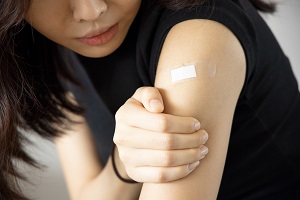 New data from the v-safe surveillance system from the Centers for Disease Control and Prevention (CDC), published in JAMA, affirm that most patients receiving an mRNA-based COVID-19 vaccine report injection-site reactions after the first dose (70.0%) and second dose (75.2%). Systemic reactions, though “expected,” were frequent as well, occurring in 50.0% after the first dose and 69.4% after the second. Fatigue, headache, myalgia, chills, fever, and joint pain were more common after the second dose.
New data from the v-safe surveillance system from the Centers for Disease Control and Prevention (CDC), published in JAMA, affirm that most patients receiving an mRNA-based COVID-19 vaccine report injection-site reactions after the first dose (70.0%) and second dose (75.2%). Systemic reactions, though “expected,” were frequent as well, occurring in 50.0% after the first dose and 69.4% after the second. Fatigue, headache, myalgia, chills, fever, and joint pain were more common after the second dose.
April 5, 2021
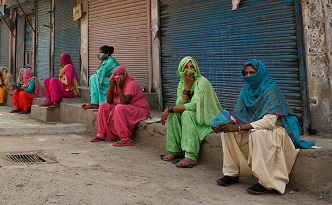 India has become the second country (after the United States) to record more than 100,000 COVID-19 cases in a single day, according to Reuters. The total is now 12.6 million, third in the world after the US and Brazil. “The country’s daily infections have risen about 12-fold since hitting a multi-month low in early February, when authorities eased most restrictions and people largely stopped wearing masks and following social distancing.”
India has become the second country (after the United States) to record more than 100,000 COVID-19 cases in a single day, according to Reuters. The total is now 12.6 million, third in the world after the US and Brazil. “The country’s daily infections have risen about 12-fold since hitting a multi-month low in early February, when authorities eased most restrictions and people largely stopped wearing masks and following social distancing.”
The US Centers for Disease Control and Prevention (CDC) updated its guidance Friday to state that fully vaccinated Americans can travel within the United States, Roll Call reports. During travel, people should wear masks, avoid crowds and remain socially distant, wash their hands often, and use hand sanitizer. The CDC says vaccinated people do not need to get tested or self-quarantine after travel.
In the face of surging COVID-19 cases in the US, prominent advisors to President Joe Biden and former President Donald Trump are urging the Biden administration to consider delaying second vaccine doses in order to cover a greater proportion of the population with at least one shot, STAT reports. “[T]he shift in opinion underscores the growing alarm at a possible fourth wave of US COVID-19 cases—and frustration with the federal government’s lack of flexibility.” Anthony Fauci, MD, director of the National Institute of Allergy and Infectious Diseases (NIAID), told NPR that he doesn’t expect a fourth wave to be as severe as the prior three because of a surge in vaccinations.
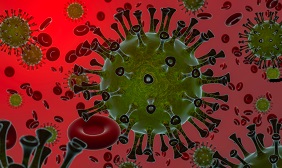 A research letter in JAMA Internal Medicine shows that among adult members of the Kaiser Permanente Northern California health plan, the 30-day incidence of outpatient venous thromboembolism was no higher in symptomatic patients with a positive SARS-CoV-2 test versus those with negative results. “These findings suggest that VTE incidence outside of the hospital is not significantly increased with SARS-CoV-2 infection and argue against the routine use of outpatient thromboprophylaxis outside of clinical trials,” the authors say.
A research letter in JAMA Internal Medicine shows that among adult members of the Kaiser Permanente Northern California health plan, the 30-day incidence of outpatient venous thromboembolism was no higher in symptomatic patients with a positive SARS-CoV-2 test versus those with negative results. “These findings suggest that VTE incidence outside of the hospital is not significantly increased with SARS-CoV-2 infection and argue against the routine use of outpatient thromboprophylaxis outside of clinical trials,” the authors say.
Johnson & Johnson has taken over a plant that ruined about 15 million doses of its Janssen COVID-19 vaccine, with the United States stopping AstraZeneca from using the facility in Baltimore, MD, Reuters reports. Johnson & Johnson reiterated that it will deliver 100 million doses to the government by the end of May. As we reported in the Dispatch last week, workers at the plant “conflated ingredients” for the Johnson & Johnson and AstraZeneca vaccines, making those doses unusable.
British Prime Minister Boris Johnson said a planned reopening of the economy, which would involve the opening of all shops, gyms, hairdressers, and outdoor hospitality areas in England, could occur next week, although the government said it’s too soon to determine whether international summer vacations will be allowed this year, Reuters reports. A government review said: “Taking into account the latest situation with variants and the evidence about the efficacy of vaccines against them, we will confirm in advance whether nonessential international travel can resume on 17 May, or whether we will need to wait longer before lifting the outbound travel restriction.”
Researchers have updated a prior analysis showing a 20% increase in excess US deaths between March and July 2020, a bump only partially explained by COVID-19. In the new study, published in JAMA, the researchers extended the time period to January 2, 2021, finding a similar increase in excess deaths of 22.9%. Non-Hispanic Black individuals were hardest hit. “Tallying the cost of the pandemic can help in understanding how much society stands to gain by preparing for the next one,” Alan Garber, MD, PhD, writes in an accompanying editorial.
A survey of faculty, staff, and trainees at the University of Utah Health shows that about one-fifth considered leaving the workforce and 30% considered reducing hours due to stressors caused by the pandemic, according to a study in JAMA Network Open. Roughly one-half of parents reported stress caused by parenting and managing virtual education for children.
 An indoor bar opening event in Illinois in February 2021 was associated with 46 COVID-19 cases, including secondary cases among household, long-term care facility, and school contacts, according to a study in Morbidity and Mortality Weekly Report. It was tied to a school closure affecting 650 students. “As community businesses reopen, prevention measures should be emphasized, including limiting building occupancy, improving ventilation, prioritizing outdoor seating, enforcing correct mask wearing and physical distancing, staying home when ill, and encouraging COVID-19 vaccination to reduce transmission on site and within the community,” the authors recommend.
An indoor bar opening event in Illinois in February 2021 was associated with 46 COVID-19 cases, including secondary cases among household, long-term care facility, and school contacts, according to a study in Morbidity and Mortality Weekly Report. It was tied to a school closure affecting 650 students. “As community businesses reopen, prevention measures should be emphasized, including limiting building occupancy, improving ventilation, prioritizing outdoor seating, enforcing correct mask wearing and physical distancing, staying home when ill, and encouraging COVID-19 vaccination to reduce transmission on site and within the community,” the authors recommend.
Todd Neale is the Associate News Editor for TCTMD and a Senior Medical Journalist. He got his start in journalism at …
Read Full Bio


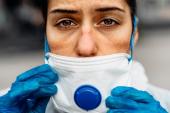

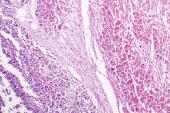
Comments